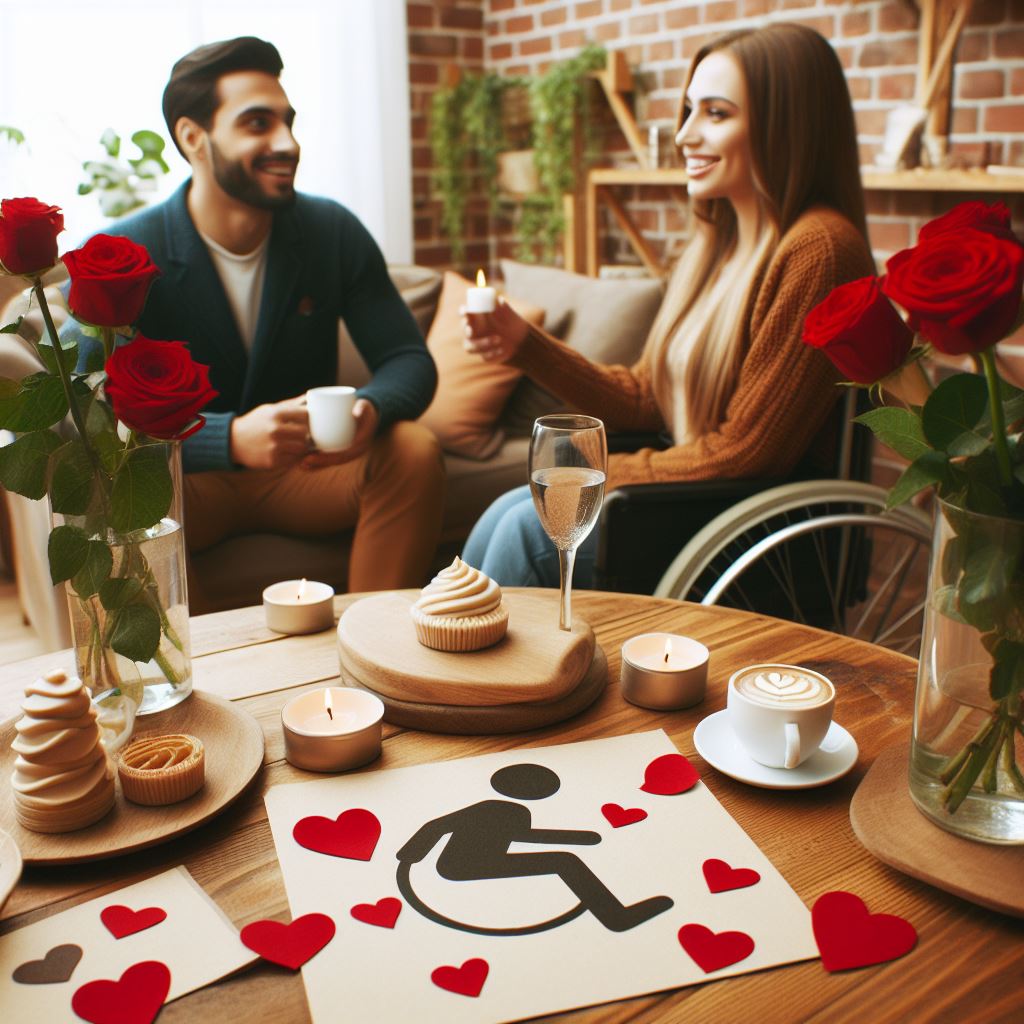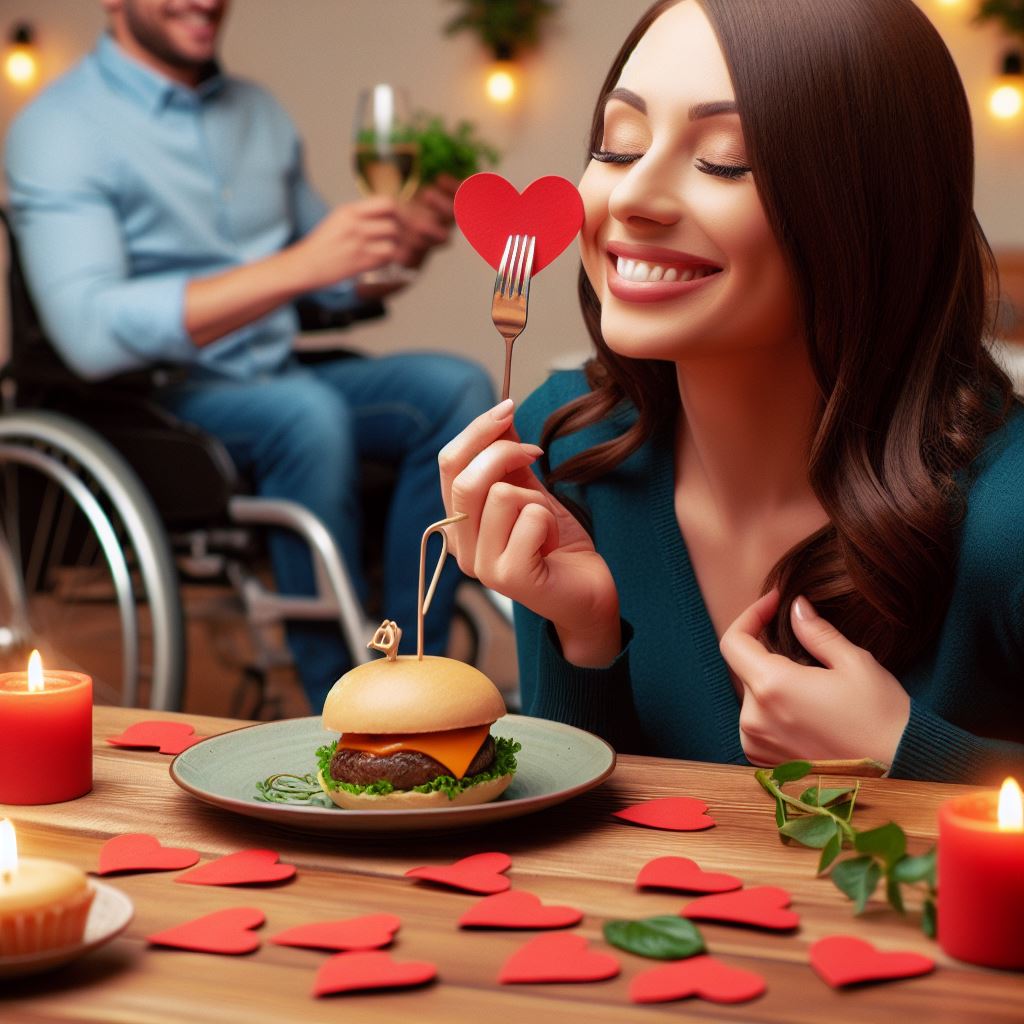Dating can be a daunting and nerve-wracking experience for anyone, but especially for people with disabilities. People with disabilities often face many challenges and stereotypes when it comes to dating, such as:

- Lack of accessibility and inclusivity in dating venues and platforms
- Low self-esteem and confidence due to internalized ableism and stigma
- Fear of rejection and discrimination from potential partners
- Difficulty in finding compatible and supportive partners who understand their needs and boundaries
- Pressure to conform to unrealistic and harmful expectations of beauty and normality
These challenges and stereotypes can make dating with disabilities seem impossible or undesirable. However, this is not the case. Dating with disabilities can be a rewarding and fulfilling experience, as long as you overcome the common obstacles and negative perceptions that may hold you back. Here are some tips on how to do that:

- Embrace your disability and identity. Your disability is not something to be ashamed of or hide from. It is part of who you are and what makes you unique. You have the right to be proud of your disability and express it in any way you want. Don’t let anyone tell you otherwise. Your disability does not define you, but it is an important aspect of your identity that you should celebrate and respect.
- Challenge the stereotypes and myths. There are many misconceptions and prejudices about people with disabilities and their dating lives. Some of these include:
- People with disabilities are not interested in or capable of dating or having sex
- People with disabilities only date other people with disabilities
- People with disabilities are dependent and needy in relationships
- People with disabilities are a burden or a charity case for their partners These stereotypes and myths are false and harmful. They dehumanize and infantilize people with disabilities, and deny them their agency and autonomy. They also create barriers and biases for people with disabilities to find and maintain healthy and happy relationships. You can challenge these stereotypes and myths by educating yourself and others, sharing your experiences and perspectives, and calling out discrimination and injustice when you see it.
- Be confident and assertive. Confidence and assertiveness are attractive and empowering qualities that can help you in dating and relationships. Confidence means having a positive and realistic view of yourself and your abilities, and being comfortable with who you are and what you want. Assertiveness means being able to communicate your needs and boundaries clearly and respectfully, and standing up for yourself and your rights. You can build your confidence and assertiveness by:
- Practicing self-care and self-compassion
- Seeking professional help and support if you need it
- Joining disability communities and networks
- Engaging in activities and hobbies that you enjoy and excel at
- Celebrating your achievements and strengths
- Be open and honest. Honesty and openness are essential for any successful relationship, but especially for dating with disabilities. Honesty means being truthful and authentic about yourself and your disability, and not hiding or lying about anything that may affect your relationship. Openness means being willing and ready to share your feelings, thoughts, and experiences with your partner, and listening and learning from theirs. You can be open and honest by:
- Disclosing your disability when you feel comfortable and safe
- Explaining your disability and how it affects you and your relationship
- Asking and answering questions about your disability and your partner’s
- Expressing your preferences and desires
- Sharing your fears and insecurities
- Be flexible and creative. Dating with disabilities can sometimes require some flexibility and creativity to overcome the challenges and limitations that may arise. Flexibility means being adaptable and willing to compromise and adjust to different situations and circumstances. Creativity means being innovative and resourceful in finding solutions and alternatives to problems and obstacles. You can be flexible and creative by:
- Exploring different dating options and platforms
- Choosing accessible and inclusive dating venues and activities
- Finding ways to make dating fun and enjoyable for both of you
- Experimenting with different forms of intimacy and expression
- Seeking and accepting help and assistance when needed
Dating with disabilities can be a wonderful and enriching experience, as long as you overcome the common challenges and stereotypes that may hinder you. By following these tips, you can boost your chances of finding and keeping a loving and supportive partner who will appreciate you for who you are, and not for what you can or cannot do. Remember, you deserve to be happy and loved, and your disability is not a barrier, but a blessing. Happy dating!